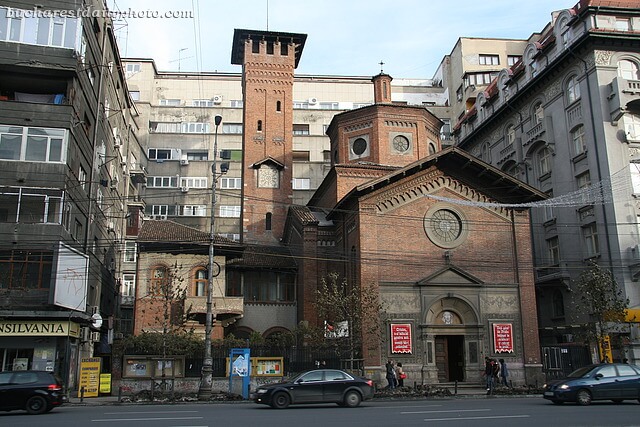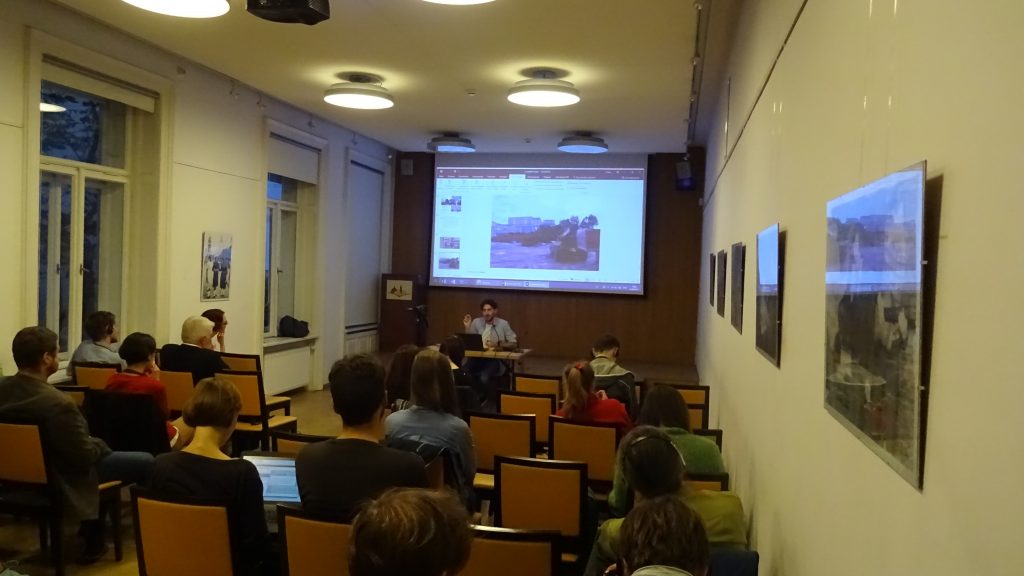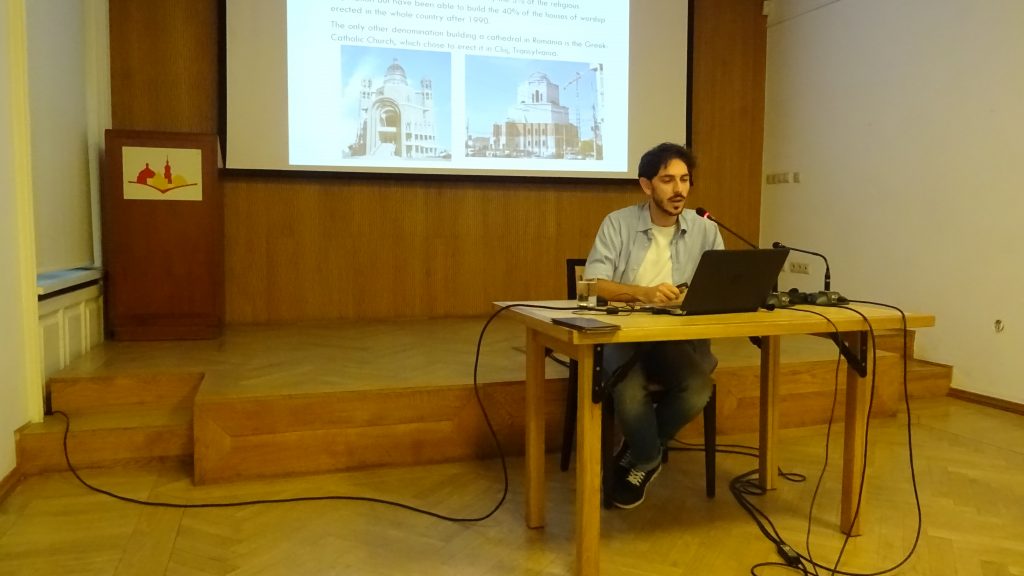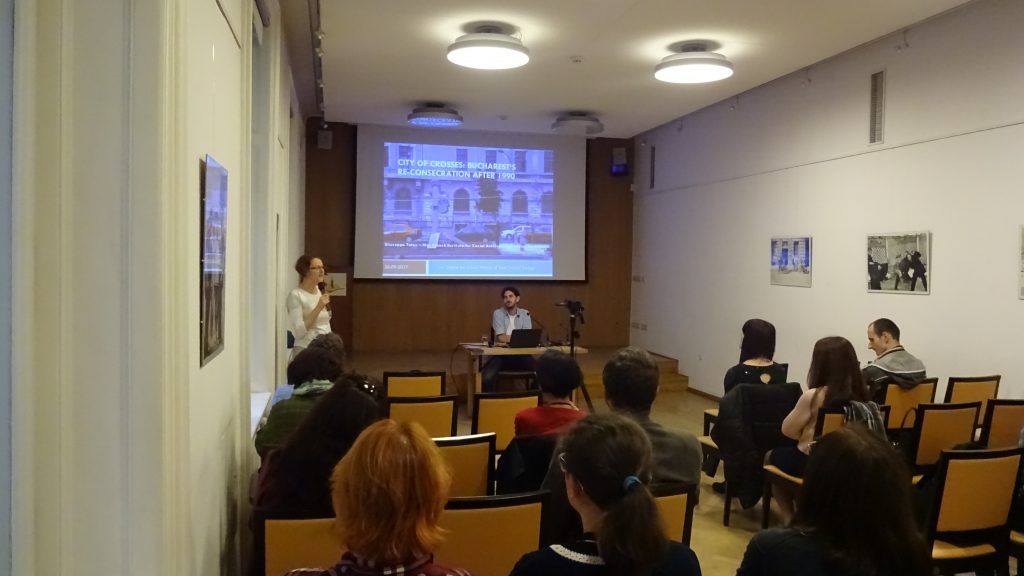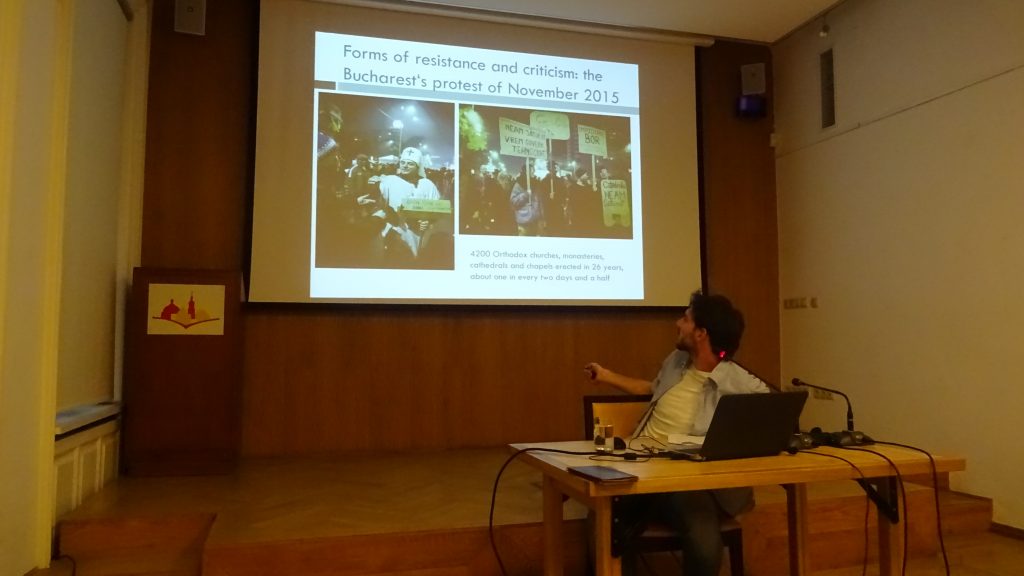City of Crosses: Bucharest’s Re-consecration after 1990
Giuseppe Tateo
Max Planck Institute for Social Anthropology, Halle, GermanySeptember 26, 2017 / 6.30 pm
Center for Urban History, Lviv
Bucharest’s public space has been marked with religious symbols immediately after the communist regime fell. This process unfolds by placing crosses in specific places, erecting new churches and cathedrals as well as by thronging the streets of the capital during processions and pilgrimages. Space has been re-consecrated through religious representations, but the meaning of this process is not unequivocal, as it is negotiated and debated among many actors. On the one hand, church-building activities and the monumentalisation of the cross have been a widespread practice pursued by more or less institutionalised groups as part of the dominant anti-communist discourse. On the other hand, anticlerical sentiments and secularist ideas are stronger than ever. If the label of religious revival seems now to be outdated, how should we understand the coexistence of such divergent phenomena in today’s Bucharest?
The lecture was in English, with simultaneous interpreting.

Giuseppe Tateo
during his formation as sociocultural anthropologist at the University of Turin he has been dedicating himself to urban ethnographies in post-socialist and post-soviet cities. Before his PhD, he conducted two short-term fieldworks: first in Northern Romania exploring local interdenominational conflicts and two years later in Moldova, focusing on the new “Western-oriented” side of the capital. Currently he is a PhD candidate at the Max Planck Institute for Social Anthropology, Halle, Germany. His dissertation deals with the growing presence of religious signifiers in the Bucharest cityscape after 1990. In September 2017, Giuseppe Tateo was awarded the Center’s Research Grant. During his time in Lviv he will work on the topic “City of Crosses: Bucharest’s Re-Consecration after 1990.”
Credits
Сover Image: The Italian Church of the Most Holy Redeemer built in 1915-1916, Bucharest
